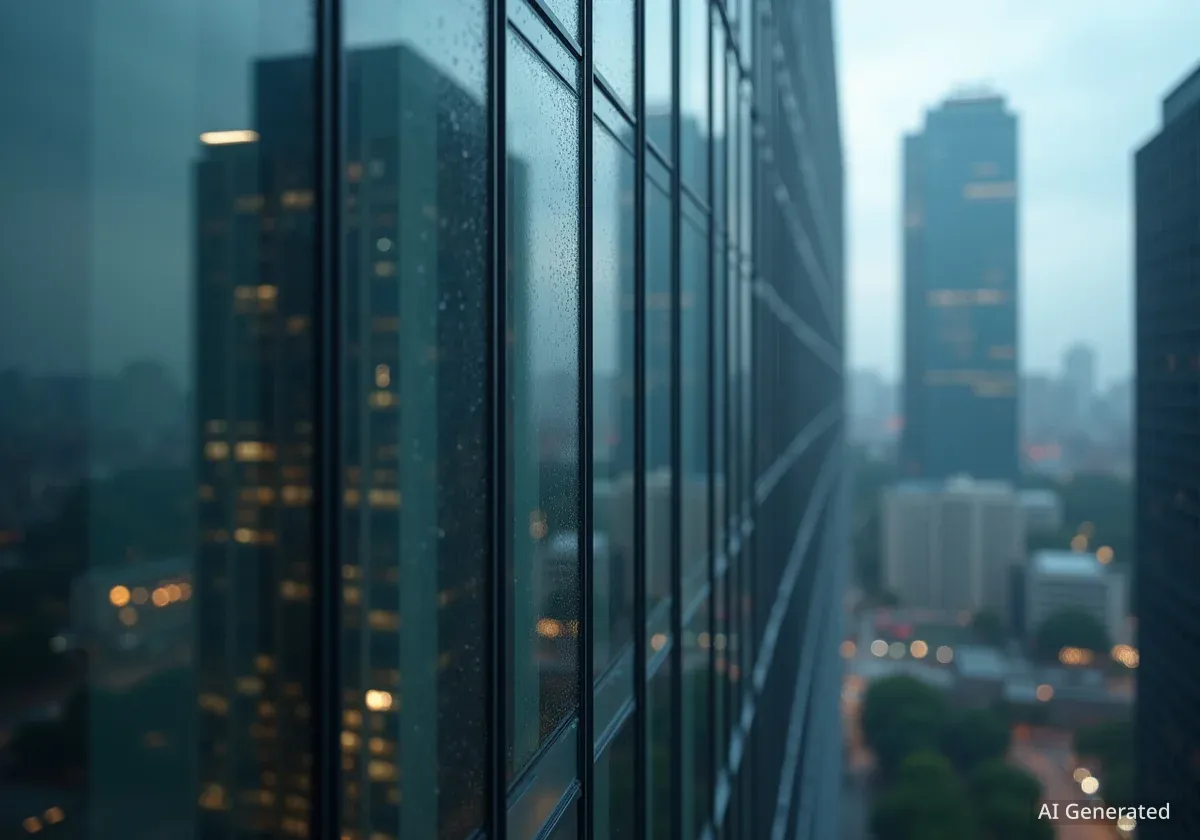The potential election of state assemblyman Zohran Mamdani as New York City's next mayor has created significant uncertainty within the city's influential real estate industry. His progressive platform, which includes proposals for rent freezes, higher corporate taxes, and a larger government role in housing development, is being closely watched by property owners, investors, and developers who fear the policies could disrupt the market.
Key Takeaways
- Real estate leaders express concern over Zohran Mamdani's proposed policies, including rent freezes and tax increases on corporations and high earners.
- Mamdani's housing plan calls for a $100 billion city-led initiative to build 200,000 affordable units, reducing reliance on private developers.
- Industry figures worry that the proposed tax hikes could drive wealthy residents and businesses out of New York City, impacting the tax base.
- Despite concerns, some developers who have met with Mamdani describe him as a good communicator and acknowledge his points on income inequality.
- The election on November 4 will determine if Mamdani's affordability-focused agenda will be implemented in the nation's largest commercial property market.
A Platform of Sweeping Economic Change
Zohran Mamdani, a democratic socialist, has built his campaign around addressing New York City's affordability crisis. His proposals represent a fundamental shift from previous administrations, aiming to rebalance the economic landscape in favor of tenants and working-class residents. This approach has generated both strong support from progressive voters and considerable apprehension from the business community.
Central to his agenda is a plan to significantly increase taxes on corporations and the city's highest earners. Mamdani proposes raising the top state corporate tax rate from 7.25% to 11.5% and adding a new 2% income tax on individuals earning more than $1 million per year. His campaign argues these measures are necessary to fund ambitious social programs, including universal childcare and free bus services.
The Debate Over Tax Increases
Business leaders are wary of the potential consequences of these tax hikes. Greg Kraut, co-founder and CEO of real estate firm KPG Funds, suggested that such policies could have a tipping point. “At a certain point, you go over the edge,” Kraut told CoStar News. “This may be that point.”
A Critical Revenue Source
According to the Citizens Budget Commission, a nonprofit think tank, residents earning over $1 million constitute less than 1% of filers in New York but have historically paid approximately 40% of both the city's and state's personal income taxes. The commission has noted a decline in New York state's share of U.S. million-dollar earners, which fell from 12.7% in 2010 to 8.7% in 2022, while states with lower tax burdens like Florida and Texas saw gains.
The concern is that further tax increases could accelerate this trend, eroding a critical source of revenue needed to support city services. Danny Fishman, CEO of investment firm Gaia Real Estate, stated that the political risk is already deterring investment. “People are shocked that in New York, the capital of capitalism in the world … someone with policies like this can be elected,” he said, adding that he has stopped new investments in the city.
Housing and Rent Control at the Forefront
Mamdani's housing policy is perhaps the most scrutinized aspect of his platform. With New York's rental vacancy rate at a historic low of 1.4% and average asking rents reaching a record $3,360 per month, his proposals aim for direct government intervention.
The Proposed Rent Freeze
A key promise is to “immediately freeze the rent for all stabilized tenants.” This proposal comes at a time when owners of the city's 1 million rent-stabilized units are already facing financial pressure. A survey by the Community Preservation Corporation found that expenses for these buildings have been rising at double the rate of rent growth, leading to an increase in delinquent loans.
“We're in this distress situation now, even before ‘rent freezes’ come into effect,” said Karim Hutson, CEO of mixed-income housing developer Genesis Companies. “That just talks to just how troubled as an industry that we are.”
Hutson pointed to uncontrollable costs like water, sewer, insurance, and utilities as major drivers of this financial strain on property owners.
A New Model for Housing Development
Beyond rent control, Mamdani advocates for the city to take the lead in building affordable housing. His plan calls for a $100 billion commitment over ten years to create 200,000 publicly subsidized, rent-stabilized units. The goal is to reduce reliance on private developers, who his campaign says “profit” from the housing crisis.
To fund this, he plans to raise $70 billion through municipal bonds, a move that would require state approval. However, some experts question the city's capacity to execute such a large-scale construction program without private sector involvement.
The Role of Private Developers
Vicki Been, a former NYC deputy mayor for housing and now co-faculty director of NYU’s Furman Center for Real Estate and Urban Policy, argues that private-public partnerships are essential. “The city cannot fill or preserve enough housing without private partners,” Been stated. “The city doesn't have the expertise. … It needs the private sector. … They are very good at building. They are very good at operating.”
Industry Leaders Meet with Mamdani
Despite the widespread anxiety, some prominent real estate executives have met with the 33-year-old candidate. Their takeaways suggest a more nuanced picture than his public platform might indicate. Jeff Gural, chairman of GPF Real Estate, whose portfolio includes the Flatiron Building, expressed the industry's core fear.
“The fear is real,” Gural said in an interview, citing Mamdani's lack of executive experience. “With no experience, and you’re going to have him running the biggest city in America. I think that's risky, no matter what his policies are.”
However, after meeting Mamdani, Gural described him as “charming” and found common ground on the issue of wealth disparity. “I think he makes a good point that this income inequality is a problem. No question about it. ... I agree with him on that,” Gural noted.
Scott Rechler, CEO of RXR Realty, shared a similar experience. “I found him much better as a communicator than the caricature that they show him in the news," Rechler said. He felt Mamdani was “more focused on governing than politicking,” but remained cautious, adding, “the proof is going to be in the pudding.”
Broader Policy Implications for NYC
Mamdani's agenda extends beyond real estate and taxes, with several other proposals that could reshape the city's economy and daily life. These initiatives are also being closely watched by the business community.
Public Safety and Policing
Public safety remains a top concern for New Yorkers. A recent survey found only 22% of residents feel safe on the subway at night, down from 46% in 2017. Mamdani has previously supported calls to “defund the police” but has since moderated his stance, now saying law enforcement has a “critical role to play.” His plan includes creating a Department of Community Safety to dispatch outreach workers to prevent violence. Jeff Gural emphasized the importance of this issue for landlords, stating, “We can't move our buildings, but companies can move to other cities and states.”
Other Economic Initiatives
Mamdani's platform also includes several other significant economic proposals:
- Property Tax Reform: He plans to overhaul the city's “arcane” property tax system to shift the burden from homeowners in outer boroughs to more expensive homes in wealthier areas.
- City-Owned Grocery Stores: A proposal to create a network of city-owned grocery stores to sell goods at wholesale prices has drawn criticism for potentially undermining private small businesses.
- Minimum Wage Increase: He supports raising the city’s minimum wage to $30 per hour by 2030, a significant jump from the current $16.50.
As the November 4 election approaches, voters will decide whether to embrace Mamdani's vision for a radically different New York City. The outcome will have profound implications not only for the real estate industry but for every resident and business in the five boroughs.





